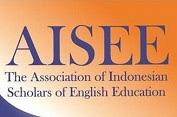TEACHERS’ CONSTRAINTS IN THE IMPLEMENTATION OF HIGHER ORDER THINKING SKILLS IN EFL CLASSROOMS
DOI:
https://doi.org/10.36706/jele.v12i1.66Keywords:
EFL, English proficiency, higher order thinking skills, linguistic challenges, time constraintAbstract
The current study aimed to investigate the constraints that the EFL teachers encountered during the implementation of higher order thinking skills. This study employed purposive sampling. It involved
twelve English teachers from five senior high schools. The participants were selected based on their teaching experience and the accreditation status of their schools. All participants were teaching in schools designated as Sekolah Penggerak, which are part of an Indonesian government initiative to drive educational improvement. Data were gathered through classroom observations and semi-structured interviews, then analysed using thematic analysis to identify recurring patterns and
key issues. The analysis revealed three main constraints in the implementation of HOTS-based learning: (1) linguistic challenges, including students’ limited vocabulary, grammatical difficulties, and pronunciation issues that hindered active participation in critical thinking tasks; (2) heterogeneous language proficiency levels among students, making it difficult for teachers to deliver lessons that met the needs of all learners equally; and (3) time constraint, especially regarding the planning and execution of lessons that require deeper thinking and active student engagement. These findings highlight the need for more targeted language support for students, differentiated teaching strategies, and improved time management or curriculum adjustments to support the effective integration of HOTS in EFL classrooms.
References
Abkary, N. S., & Purnawarman, P. (2020). Indonesian EFL teachers’ challenges in assessing students’ higher-order thinking skills (HOTS). 509(Icollite), 482–489. https://doi.org/10.2991/assehr.k.201215.076
Assaly, I., & Jabarin, A. (2024). Arab Israeli EFL teachers’ perceptions and practices vis-à-vis teaching higher-order thinking skills: A complicated relationship. Language Teaching Research, 28(4), 1635–1655. https://doi.org/10.1177/13621688211032426
Braun, V., & Clarke, V. (2006). Using thematic analysis in psychology. Qualitative Research in Psychology, 3(2), 77–101. https://doi.org/doi.org/10.1191/1478088706qp063oa
Faravani, A., & Taleb, E. (2020). Teachers’ use of Bloom’s higher order questions in class to augment EFL learners’ listening comprehension and critical thinking ability. Journal of Language and Cultural Education, 8(2), 94–113. https://doi.org/10.2478/jolace-2020-0015
Fitriani, R., Iskandar, I., & Seseno, M. (2021). The implementation of higher order thinking skills (HOTS) in English Language Teaching: the case of Indonesian Senior High School EFL teachers. Didaktika: Jurnal Kependidikan, 12(4), 739–750.
Fraenkel, J. R., Wallen, N. E., & Hyun, H. . (2012). How to design and evaluate research in education (8th ed). McGraw-Hill.
Ginting, A. A., & Kuswandono, P. (2020). Challenges faced by English teachers: Implementation of higher Order thinking skills (HOTS) in designing assignments in East Indonesia. Pedagogy : Journal of English Language Teaching, 8(1), 13. https://doi.org/10.32332/pedagogy.v8i1.1688
Gupta, T., & Mishra, L. (2021). Higher-order thinking skills in shaping the future of students. Psychology and Education, 58(2), 9305–9311. www.psychologyandeducation.net
Gustiana, P. D., Yunita, W., & Maisarah, I. (2024). The higher order thinking skills ( HOTS ) in activities of the lesson plan by in service teachers of the teacher certification program. 12(01), 125–136.
Hidayat, R. H., & Lestari, Y. B. (2023). Challenges teachers face in applying higher order thinking skills: A case study at Madani Super Camp English Course. In Proceedings of the 3rd Annual Conference of Education and Social Sciences (ACCESS 2021). Atlantis Press SARL. https://doi.org/10.2991/978-2-494069-21-3
Li, L. (2016). Integrating thinking skills in foreign language learning: What can we learn from teachers’ perspectives? Thinking Skills and Creativity, 22, 273–288. https://doi.org/10.1016/j.tsc.2016.09.008
Liu, J., Ma, Y., Sun, X., Zhu, Z., & Xu, Y. (2022). A systematic review of higher-order thinking by visualizing its structure through HistCite and CiteSpace software. Asia-Pacific Education Researcher, 31(6), 635–645. https://doi.org/10.1007/s40299-021-00614-5
Masyhud, M., Nurbatra, L. H., & Hartiningsih, S. (2021). The implementation of higher order thinking skills (HOTS) trough lesson study: A case study at Islamic School in Thailand. JINoP (Jurnal Inovasi Pembelajaran), 7(1), 92–101. https://doi.org/10.22219/jinop.v7i1.10357
Mohammed AlKhoudary, Y. A. (2015). The effect of teaching critical thinking on Al-Buraimi University College students’ writing skills: A case study. International Journal of Applied Linguistics and English Literature, 4(6), 212–219. https://doi.org/10.7575/aiac.ijalel.v.4n.6p.212
Nguyen, Y. N. T., & Nguyen, H. B. (2022). Teachers’ strategies in incorporating higher-order thinking skills in reading classes. European Journal of English Language Teaching, 7(4), 15–33. https://doi.org/10.46827/ejel.v7i4.4393
Pusparini, D., Suparno, & Sarosa, T. (2020). Teachers ’ knowledge about higher -order thinking skills and its implementation in teaching reading. Jurnal Edulingua, 7(2), 76.
Seman, S. C., Yusoff, W. M. W., & Embong, R. (2017). Teachers challenges in teaching and learning for higher order thinking skills (HOTS) in primary school. International Journal of Asian Social Science, 7(7), 534–545. https://doi.org/10.18488/journal.1.2017.77.534.545
Singh, C. K. S., Gopal, R., Ong, E. T., Singh, T. S. M., Mostafa, N. A., & Singh, R. K. A. (2020). ESL teachers’ strategies to foster higher-order thinking skills to teach writing. Malaysian Journal of Learning and Instruction, 17(2), 195–226. https://doi.org/10.32890/mjli2020.17.2.7
Stake, R. E. (2005). The Sage handbook of qualitative research. In N. K. D. Y. S. Lincoln (Ed.), Qualitative Research in Organizations and Management: An International Journal (3rd ed.). Sage. https://doi.org/10.1108/17465640610666642
Subhkan, E., & Wahyudin, D. (2024). Kajian Akademik Kurikulum Merdeka. Pusat Kurikulum dan Pembelajaran Badan Standar, Kurikulum, dan Asesmen Pendidikan Kementeruan Pendidikan, Kebudayaan, Riset, dan Teknologi.
Suryani, H. (2024). Higher Order Thinking Skills in EFL classrooms: Evidence in five secondary schools. Kasetsart Journal of Social Sciences, 45, 103–112. https://doi.org/https://doi.org/10.34044/j.kjss.2024.45.1.11
Tyas, M. A., Nurkamto, J., Marmanto, S., & Laksani, H. (2019). Developing higher order thinking skills (HOTS) – based questions: Indonesian EFL teachers’ challenges. October, 52–63. https://doi.org/10.17501/26307413.2019.2106
Yin, Y., & Abdul Samat, N. (2024). Factors affecting teachers’ HOTS implementation in Chinese college EFL classrooms. International Journal of Academic Research in Progressive Education and Development, 13(1), 1053–1066. https://doi.org/10.6007/ijarped/v13-i1/20513
Downloads
Published
Issue
Section
License
Copyright (c) 2025 The Journal of English Literacy Education: The Teaching and Learning of English as A Foreign Language

This work is licensed under a Creative Commons Attribution-ShareAlike 4.0 International License.













